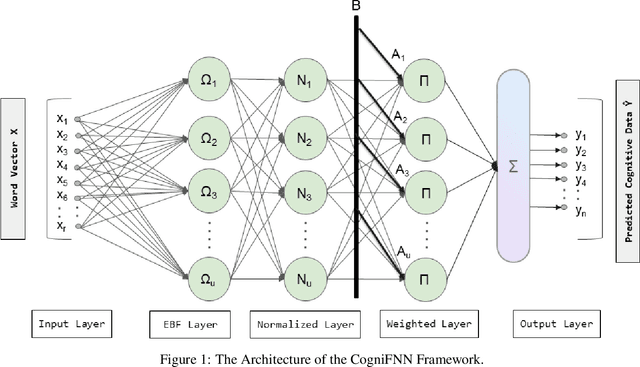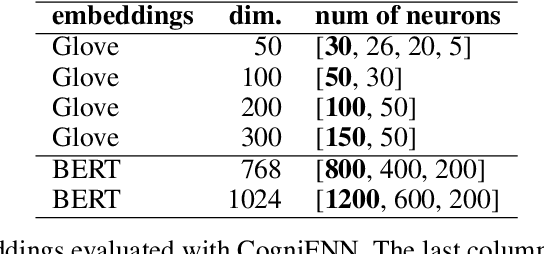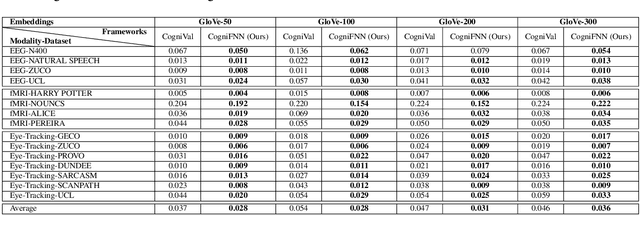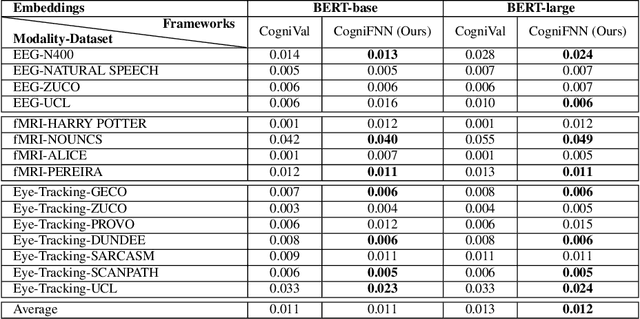CogniFNN: A Fuzzy Neural Network Framework for Cognitive Word Embedding Evaluation
Paper and Code
Sep 24, 2020



Word embeddings can reflect the semantic representations, and the embedding qualities can be comprehensively evaluated with human natural reading-related cognitive data sources. In this paper, we proposed the CogniFNN framework, which is the first attempt at using fuzzy neural networks to extract non-linear and non-stationary characteristics for evaluations of English word embeddings against the corresponding cognitive datasets. In our experiment, we used 15 human cognitive datasets across three modalities: EEG, fMRI, and eye-tracking, and selected the mean square error and multiple hypotheses testing as metrics to evaluate our proposed CogniFNN framework. Compared to the recent pioneer framework, our proposed CogniFNN showed smaller prediction errors of both context-independent (GloVe) and context-sensitive (BERT) word embeddings, and achieved higher significant ratios with randomly generated word embeddings. Our findings suggested that the CogniFNN framework could provide a more accurate and comprehensive evaluation of cognitive word embeddings. It will potentially be beneficial to the further word embeddings evaluation on extrinsic natural language processing tasks.
 Add to Chrome
Add to Chrome Add to Firefox
Add to Firefox Add to Edge
Add to Edge